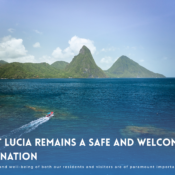
CHTA Statement on Caribbean Tax Reforms and the Tourism Sector
The Caribbean Hotel and Tourism Association (CHTA) warns that the removal of long-standing tax incentives could negatively impact tourism’s contribution to the Caribbean’s economic development, employment, and tax revenues. These incentives help offset the region’s high operating costs and attract vital business investment.
CHTA acknowledges the fiscal challenges Caribbean governments face post-COVID-19. Public infrastructure, healthcare, and social services are critical for citizens and the success of tourism. Tourism has significantly driven economic recovery, restoring jobs and government revenues faster than expected.
While investments in infrastructure support a stable environment for both residents and visitors, removing tourism tax incentives without offering alternatives risks stalling growth, reducing competitiveness, and limiting job creation.
Tourism operates as an export sector, bringing in foreign exchange when international visitors spend on local goods and services. Unlike traditional exports, tourism’s product is consumed locally. Taxing inputs like infrastructure and hospitality increases costs and reduces competitiveness, driving tourists to cheaper destinations. Incentives are essential to sustaining growth, enhancing service quality, and boosting foreign exchange earnings.
A major challenge for Caribbean tourism is the ageing hotel stock, which needs refurbishment. Without financial support, hotels will struggle to maintain global standards, weakening the region’s competitiveness.
Tourism remains the Caribbean’s economic engine, benefitting not just hotels but also local farmers, fishermen, and artisans. Tax incentives have allowed businesses to invest in growth, create jobs, and contribute to the broader economy.
The World Travel and Tourism Council (WTTC) issued a special report on the Caribbean’s long-term tourism outlook in 2022, cautioning that the level of tourism’s contribution to GDP and employment growth in the region would be contingent upon several factors, including greater investments in human capital, digitization, public and private infrastructure and the degree of collaboration between the public and private sectors.
Jamaica’s Omnibus Incentives Legislation in 2013 offers an example of balanced tax reform. By streamlining fragmented incentives and introducing corporate tax relief and employment credits, the legislation incentivized investment while maintaining contributions to the tax base.
Saint Lucia has adopted a similarly nuanced approach. Its Tourism Development Act retains income tax concessions but ties them to performance, encouraging hotels to purchase from local suppliers, benefiting both tourism and the wider economy.
In contrast, the Dominican Republic’s proposed Tax Reform Bill seeks to replace a successful incentive structure with broad tax hikes, potentially undermining tourism’s role as a key economic driver. The country’s rapid recovery post-pandemic, driven by hotel refurbishments and new investments, shows the benefits of maintaining incentives. In 2022, tax incentives cost the government US$138 million, yet generated US$763 million in tourism-related taxes—a 5.5-fold return—and US$1.05 billion in foreign direct investment, illustrating a 13-to-1 multiplier effect.
Antigua and Barbuda’s recent VAT increase and removal of key incentives are already raising costs and threatening the tourism sector’s sustained recovery. Higher taxes and fewer incentives could jeopardize competitiveness and economic stability.
“Tourism is more than an economic driver—it’s the backbone of our economies,” said Sanovnik Destang, President of CHTA. “Reducing incentives without mitigation could destabilize recovery efforts. We must continue investing in infrastructure and service sectors to sustain tourism’s growth.”
Destang emphasized, “Tourism thrives not just on natural beauty but on businesses’ ability to invest in improvements. Removing tax incentives without performance-based alternatives risks undermining those investments, especially as global competition increases.”
CHTA calls for a collaborative approach, urging governments to consult with tourism stakeholders when designing tax policies. This partnership will foster long-term growth, expand local participation, and increase tax revenues. CHTA is also open to working with institutions like the IMF and World Bank to create frameworks that support tourism growth while meeting fiscal needs. “Together, we can ensure tourism remains central to the Caribbean’s recovery and broader community development,” added Destang.
Recent Posts
2026 Saint Lucia Jazz & Arts Festival Tickets ON SALE NOW!
Clarification and Reassurance following US Embassy’s Advisory
Celebrate Valentine’s in Saint Lucia
Tags




